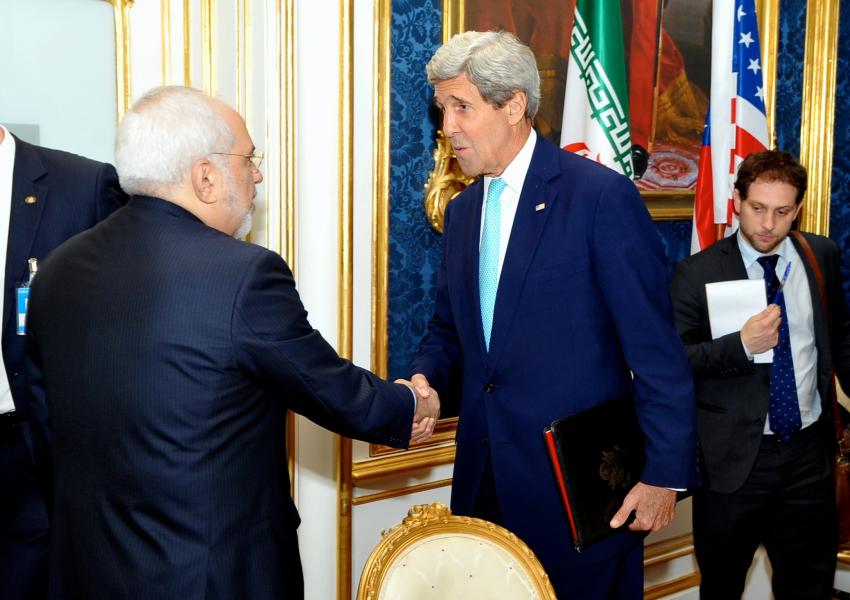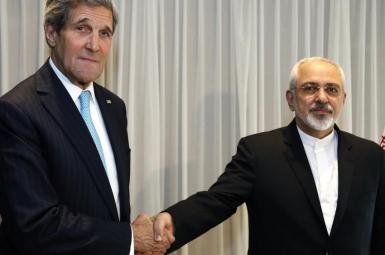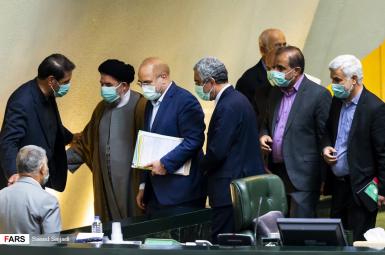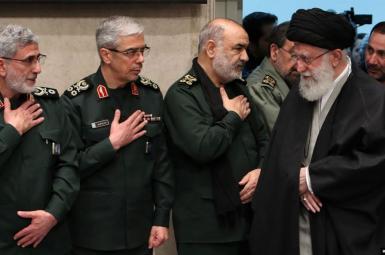
What Does Zarif Claim Kerry Said? And When?
A remark by Iran’s Foreign Minister Mohammad Javad Zarif in an audio file obtained by Iran International has led to a political dispute in the United States regarding the alleged sharing of secret information by former Secretary of State John Kerry with Iran’s top diplomat.
Congressional Republican leaders and former Secretary of State Mike Pompeo have demanded a formal investigation of Mr. Kerry for what they believe was sharing intelligence with Zarif about Israeli air strikes against Iranian targets in Syria.
Pompeo said in a tweet, "Before we cut a deal with Iran that reduces Americans’ security, it would be good to know what the arrangement, if any, may have been between these two leaders."
Several Republican Senators demand an investigation and call on Kerry to resign from his post in the Biden Administration.
Kerry has denied that such a conversation ever took place with Zarif. “I can tell you that this story and these allegations are unequivocally false. This never happened - either when I was Secretary of State or since,” Kerry tweeted.
The audio file received by Iran International contains only one brief sentence from Zarif, where complaining about the power of the Revolutionary Guard over Iran’s foreign affairs he asks rhetorically, “Should Kerry tell me that Israel has conducted more than 200 attacks [air strikes] against us in Syria?”
Zarif does not say when Kerry made the remark - during his tenure as secretary of state or after the Trump administration took office. This would make a big difference if Kerry were to stand accused of divulging intelligence to Zarif. As Secretary, it would sound perhaps part of a diplomatic dialogue, where Kerry could be questioning Iran’s deep involvement in the Syrian war. But if he is having a conversation with Zarif as a private citizen, with some access to US intelligence, and is discussing sensitive matters, it could be both ethically and perhaps legally an issue for him.
Zarif mentions no time frame about his conversation with Kerry. All he is saying in this part of the three-hour recording is that the former commander of the Qods (Quds) Force, Qasem Soleimani, was harming the 2015 nuclear deal by unilateral decisions, such as a deep involvement in the Syrian war by the instigation of Russia. What else did Kerry tell Zarif? Again there is no hint in the recording?
However, the number of Israeli airstrikes mentioned by Zarif can perhaps give us a hint about the timeframe.
Before March 2017, Israel had conducted several airstrikes in Syria, but from all indications in public record, the total number was not even close to 200. As a matter of fact, Reuters reported in September 2018 that Israel had carried out 200 attacks. The Israeli air war against Iran and its proxies in Syria intensified after March 2017, by which time Kerry was not Secretary of State but is known to have had contacts with Zarif, that the Trump Administration and the former president personally criticized on several occasions.
This could lead one to assume that the conversation took place perhaps sometime in late 2017 or in the first half of 2018. This is when someone like Kerry could have spoken of 200 airstrikes.
With Israel largely having been silent about its air war in Syria, it is hard to know if before 2017 there were 200 airstrikes that Kerry could have mentioned to Zarif. But international media and observers began to mention hundreds of airstrikes when Kerry was already out of office. Also, from the recording it is impossible to gauge the time or the context of the conversation Kerry and Zarif had.
The audio tape, which has ignited a political firestorm in Iran and has been dubbed as ‘Zarifgate’, contains perhaps dozens of nuances and interesting pieces of information that will surely occupy analysts and journalists for a long time to come. Just one sentence by Zarif has already led to many articles and political debates in the United States.








